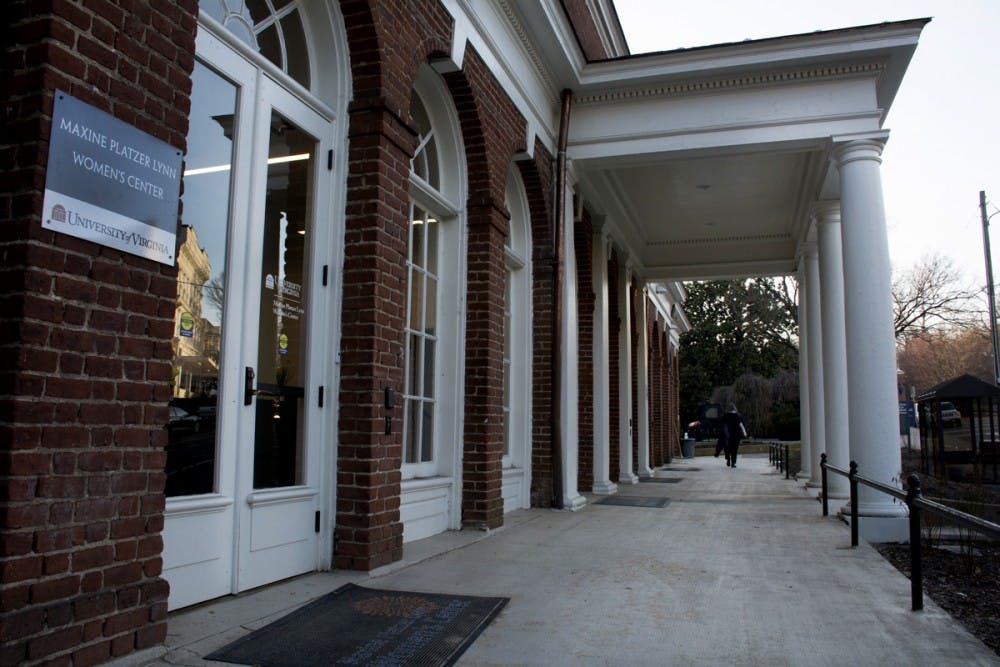What does the perfect body look like? How is this idea shaped in the first place and why? These are some of the questions that the Body Positive Team of the Maxine Platzer Lynn Women’s Center look to tackle through their work on Grounds.
Originally founded to focus on eating disorders, the Body Positive Team has now been in operation for over 10 years. Today, the team holds various group sessions, outreach activities and other preventative measures in order to help spread a healthy ideal of body image throughout the University.
One example of such a program is the Body Project, an evidence-based approach to changing stigmas surrounding body image. The Body Project began with the National Eating Disorder Association and has been replicated at the University.
“All the research … it's the gold standard of effective eating disorders prevention,” Body Positive Team Coordinator Amy Chestnutt said. “I spoke to … the researchers, and we sort of adapted it for U.Va., and we've been doing it ever since.”
Consisting of two sessions, the Body Project is designed for undergraduate University students who identify as women to talk about the idea of an “appearance ideal” and its origin. “Appearance ideal” is a thin female figure, which according to Chesnutt, really only comprises about five percent of the population.
“If I said to you, ‘What's the perfect woman look like?’ you could probably name it to me within two minutes,” Chestnutt said. “Everybody's like that … our culture has taught us that specific ideal in lots of different ways.”
Chestnutt said Body Project sessions discuss this ideal and who profits from it in small group settings of 6 to 12 women. She mentioned the costs associated with pursuing this ideal as more than just monetary, even tracing its roots to art by Botticelli and famed model Twiggy.
In comparison to this construct, Chestnutt said, the Body Project focuses on the so-called “healthy ideal” and how it varies from person to person.
“[The healthy ideal] looks different for everyone,” Chestnutt said. “With the healthy ideal, there's no list [of ideal traits] because ... if everybody is doing [things like adequate exercise and healthy eating] to maximize their health and longevity, we're all going to look different.”
Additionally, Chestnutt said the sessions offer ways to combat stigmas, such as avoiding fat shaming language and employing a “see something, say something” model that is common in health education.
Some Body Project sessions are held publicly, but some are closed sessions with certain groups like sororities. These meetings employ intervention tactics laid out by the NEDA’s Body Project in a group setting focused on discussion.
“We know that with four hours of the intervention, it … significantly reduces risk factors associated with eating disorders,” Chestnutt said. “Some interventions can take a lot more work, and they don't have nearly the impact.”
The Body Positive Team has a group of interns trained to facilitate the Body Project. Jasmin Li, second-year College student and intern, noted a time she felt she saw results beyond the team’s prized data.
In October 2018, the Body Positive Team held Body Positivi-tea, a brunch to discuss body image with food, tea and open conversation. Held during Family Weekend, Li said some family guests provided a new perspective on the contribution of age to body image.
“The parents would be like, ‘Oh, I'm concerned about my youth and my wrinkles,’” Li said. “We never really realized that ... seeing everyone else in the room also kind of acknowledge that [concerns about aging can impact body image] … was very eye opening.”
Linea Fuller, third-year College student and intern, also noted the common recognition and acceptance Body Positive programs can offer.
“It’s good to see … [everyone] kind of ... has the same insecurities, but we don't really talk about them,” Fuller said. “So I think to put them out there and discuss and break them down and learn how to deal with them — I think that's a really cool thing to do.”
Interns on the Body Positive team are involved for a variety of reasons, but many of them share a passion to carry this work into their careers. Jessica Meyers, second-year College student and intern, plans to center her career around this type of social advocacy.
“I don't know exactly what I want it to look like yet, but I want my work within policy to focus on social equity and social justice and creating a path forward for policy change,” Meyers said.
The Body Positive team also works with other organizations on Grounds to facilitate certain public events. As a member of the U.Va. Coalition on Eating Disorders and Exercise Concerns, the Body Positive Team holds events to raise awareness for these issues.
Perfect Illusions and Celebrate Every Body Week are two events for which the Body Positive Team has collaborated with the Coalition, Intramural-Recreational Sports and University Dining. Perfect Illusions — an open mic night to share eating and exercise concerns — was held on Nov. 13. This year, Celebrate Every Body Week will be held from Feb. 25 to March 1 and will include a jeans giveaway, a screening of the film “Fattitude” and other body-centered activities such as free fitness classes.







